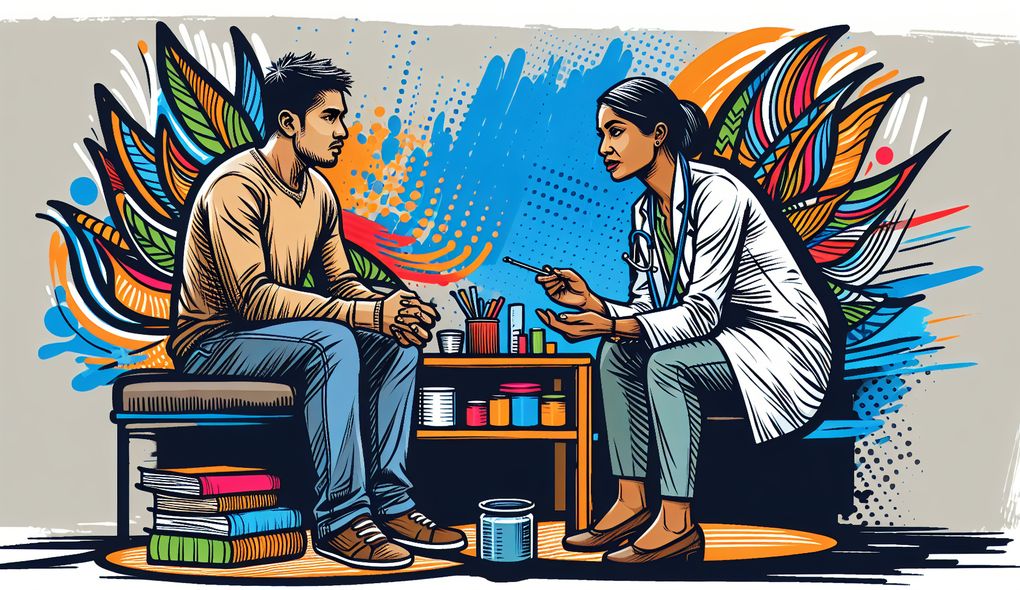Tell us about a time when you had to work with a client who was resistant to treatment.
INTERMEDIATE LEVEL

Sample answer to the question:
During my time as a Substance Abuse Counselor, I encountered a client who was resistant to treatment. This client had been struggling with a severe addiction to opioids for many years and was skeptical about the effectiveness of treatment. To build a rapport and gain their trust, I spent time actively listening to their concerns and validating their feelings. I provided education about the benefits of treatment and how it could improve their quality of life. We worked together to develop a treatment plan that aligned with their personal goals and values. I consistently offered support and encouragement during therapy sessions, highlighting their progress and identifying areas for growth. Over time, the client started to become more open to the treatment process and actively engaged in their recovery journey.
Here is a more solid answer:
As a Substance Abuse Counselor, I once worked with a client who was initially resistant to treatment. This client had a long history of substance abuse and was skeptical about the effectiveness of therapy. To address this resistance, I first used my in-depth knowledge of treatment modalities for substance abuse to assess their specific needs and tailor a treatment plan accordingly. I implemented evidence-based therapy techniques, such as cognitive-behavioral therapy and motivational interviewing, to address their substance abuse issues. I also emphasized the importance of relapse prevention and coping strategies to help them maintain sobriety. Throughout the process, I remained empathetic and patient, understanding the challenging nature of their journey. By consistently providing support, encouragement, and guidance, the client gradually became more receptive to treatment and actively engaged in their recovery.
Why is this a more solid answer?
The solid answer expands on the basic answer by providing specific details about the treatment modalities used, such as cognitive-behavioral therapy and motivational interviewing. It also highlights the counselor's knowledge and expertise in assessing the client's specific needs. The answer demonstrates strong interpersonal and communication skills, as well as empathy and patience in dealing with clients in recovery. However, it can still be improved by mentioning any collaboration with healthcare professionals and the maintenance of confidential records, as stated in the job description.
An example of a exceptional answer:
In my role as a Substance Abuse Counselor, I encountered a client who was resistant to treatment due to their past negative experiences with therapy. This client had been struggling with a severe addiction to opioids and had a deep-seated fear of relapse. To address their resistance, I utilized my extensive knowledge of treatment modalities, including cognitive-behavioral therapy, solution-focused therapy, and trauma-informed care. I approached the client with empathy and patience, acknowledging their past struggles and validating their concerns. Through active listening and open-ended questioning, I encouraged them to express their fears and doubts. I incorporated their preferences and values into the treatment plan, allowing them to feel a sense of ownership and control. In addition to individual therapy sessions, I facilitated group therapy sessions that focused on relapse prevention and coping strategies. I collaborated with other healthcare professionals, such as psychiatrists and social workers, to ensure holistic care for the client. Throughout the process, I maintained detailed and confidential records of their therapy and progress, strictly adhering to ethical standards. Gradually, the client's resistance decreased, and they began to actively participate in their treatment, eventually achieving significant progress in their recovery journey.
Why is this an exceptional answer?
The exceptional answer goes above and beyond by providing even more specific details about the treatment modalities used, including cognitive-behavioral therapy, solution-focused therapy, and trauma-informed care. It also highlights the counselor's ability to collaborate with healthcare professionals and maintain confidential records, as specified in the job description. The answer demonstrates exceptional interpersonal and communication skills, in-depth knowledge of treatment modalities, and empathy and patience in dealing with clients in recovery.
How to prepare for this question:
- Familiarize yourself with a variety of treatment modalities for substance abuse, such as cognitive-behavioral therapy, motivational interviewing, and trauma-informed care.
- Reflect on past experiences working with resistant clients and think about how you effectively addressed their resistance.
- Practice active listening and open-ended questioning techniques to demonstrate empathy and encourage clients to express their concerns.
- Consider how you would incorporate clients' preferences and values into their treatment plans to promote a sense of ownership and control.
- Review ethical standards and guidelines for maintaining confidential records of clients' therapy and progress.
What are interviewers evaluating with this question?
- Strong interpersonal and communication skills
- In-depth knowledge of treatment modalities for substance abuse
- Empathy and patience in dealing with clients in recovery

